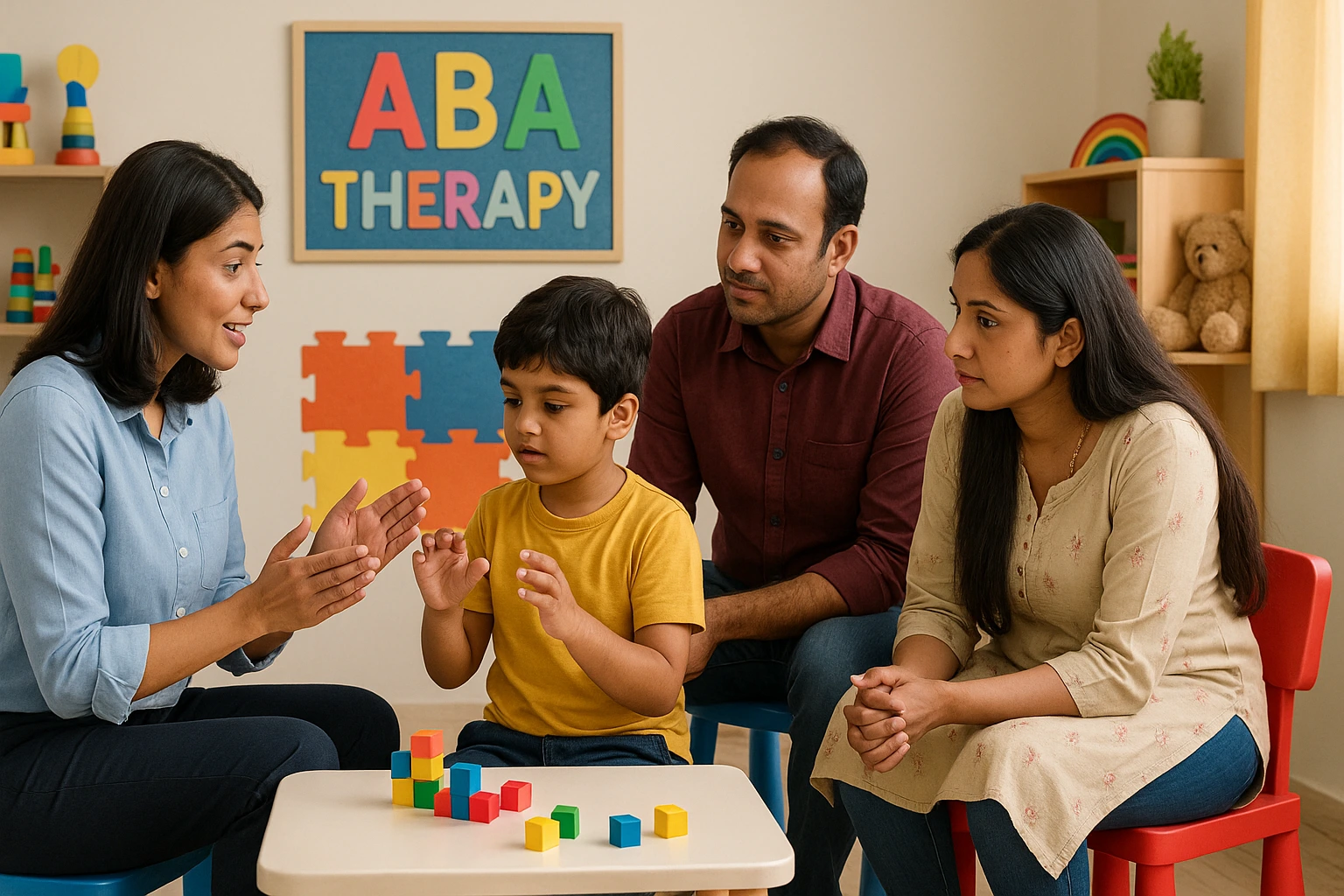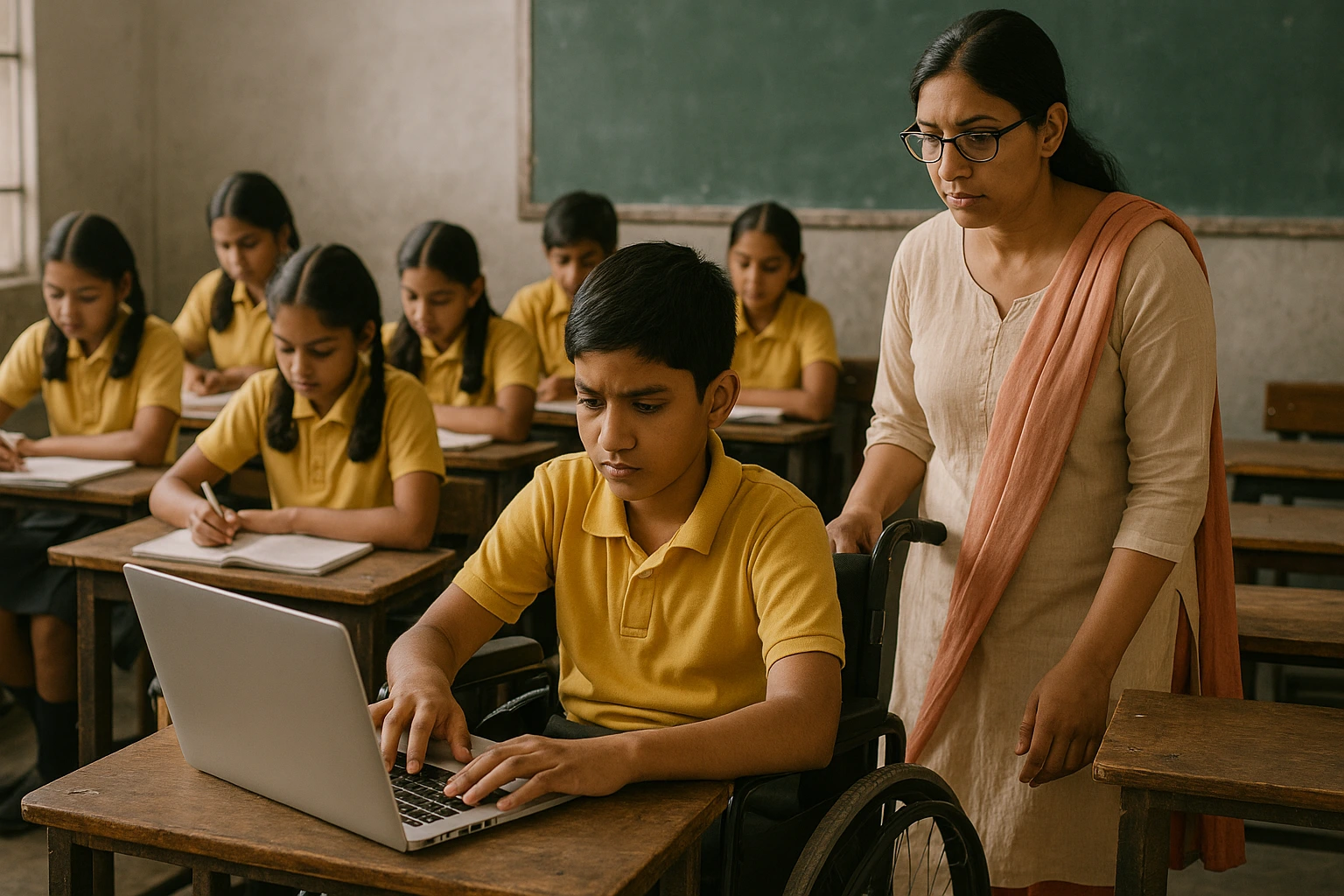Vital Role of Special Education in Schools
Vital Role of Special Education in Schools
In today’s evolving educational landscape, it is crucial to have learning spaces that foster and nurture the learning needs of all children, especially those students with disabilities. Special Education aims to provide children conducive learning environments that take into consideration the learning needs of every child, giving them a space where they can grow, thrive, and express themselves clearly without fear or stress of being misjudged.
Special Education empowers trainees to implement innovative tech-aided learning tools and differentiated instruction that ensures that every child’s learning needs are attended to.
With NEP laying down a strong focus on creating inclusive classrooms, the role of Special Educators has grown manifold, making it a booming industry for those who aim to create a bankable Career in Special Education.
Table of Content
Challenges Faced by Schools in Implementing Special Education
Although Schools are rigorously involved in making special education an integral part of their main setup, there are a lot of challenges that must be taken care of to ensure that Special Education creates the actual impact it aims to. There are numerous barriers to implementing Special Education facing schools today, with many schools unable to make headway, despite increased recognition.
Below are key challenges that schools encounter:
Inadequate Funding
One of the most significant issues with Special Education implementation in schools is budget hurdles. Schools are often not given enough funding to procure adaptive learning equipment and software, hire a licensed special educator, or provide individualized support. As a result, most programs are not fully fledged, and so limited in their effectiveness and accessibility.
Shortage of Trained Educators
Schools are struggling with an insufficient number of teachers who have Special Education Qualifications. In general, we can trust general educators to oversee their classroom, but that does not equate to having the knowledge and skill to intervene appropriately with children showing behavioural characteristics, sensory deficiencies, or learning disabilities. The inequality of professional development creates uneven methods of addressing special needs
Poor Infrastructure and Accessibility
Children with physical and sensory impairments need a school infrastructure that facilitates their movements with ease. They need an adequate number of ramps, railings, and elevators to engage completely in all classroom activities. Sometimes schools do not have the essential network connections that are needed for children who have to be taught using assistive technologies. For School Special Education to succeed, learning settings must be supportive physically and emotionally.
To overcome these challenges is to establish Special Education in Schools and to give each child an opportunity for success. To provide inclusive education for all learners, decisions must be made with a long-term commitment of resources in teacher preparation, facilities, and program support.
To download the brochure of the SEN Course, Click Here!
To know more about the SEN Course, Call or WhatsApp on +919321024137 / +919869546913.

Key Components of an Effective Special Education Program
For any School to have a proper Special Education program aligned well with its students, there has to be a dedicated workforce assigned that focuses on individual needs. A meticulously designed program that takes into consideration each child’s academic and personal development is highly successful in helping children achieve their learning goals.
The prime attributes needed for a successful system are listed below;
Below are the core components that define a successful system:
Individualized Education Programs (IEPs)
IEPs are extremely important documented plans that focus on the key strengths of the child, and the goals set are age and capability appropriate. This document highlights the learning goals of the child, support services for the child, and periodic reviews of the child, with the help of which the plans remain aligned with the student’s progress and development.
Individualized Support Services
Effective Special Education in Schools goes beyond general teaching. It incorporates various therapies that the child must undergo speech therapy, occupational therapy, and assistive technologies, that promote the child’s total participation in classroom activities.
Inclusion Strategies
Inclusive teaching methods promote learning alongside peers. Strategies of differentiated instruction, peer partnerships are skillfully integrated into the regular teaching approach in Schools. This approach encourages social interaction and boosts confidence among students with special needs.
By imbibing the above factors, the Special Education Program helps to create a happy, conducive learning environment that gives each child a deserving chance to succeed and thrive, leading wholesome lives and a bright future.
To download the brochure of the SEN Course, Click Here!
To know more about the SEN Course, Call or WhatsApp on +919321024137 / +919869546913.

Legal Rights and Educational Policies You Should Know.
It is important for educators and parents to understand the laws associated with Special Education in Schools. These laws lay down a strong foundation for safeguarding the rights of the child and ensure that children with disabilities get the benefits, concessions that they are entitled to.
Schools are also expected to follow up with the latest policies and must ensure that the infrastructure is adequate to support the easy movement of children with special needs.
Below are some key mandates that support Special Education in Schools, explained in detail.
Right to Free and Appropriate Public Education (FAPE)
This is a Basic Right that entitles children to receive free and appropriate education without being charged and free of cost. Special education is different from general education on one hand, every child with a disability is entitled to special education services, which include specially designed instruction, related services, and modifications as needed. FAPE ensures that Special Education in Schools prioritizes quality and inclusivity.
Individuals with Disabilities Education Act (IDEA)
IDEA, or the American foundational law, is the fundamental educational law based on the Special Education Provision. It describes how districts are to identify, evaluate, and deliver services to students with disabilities. Under IDEA, schools are required to provide an Individualized Education Program (IEP) for each school student who qualifies for services. This promotes a systematic approach to Special Education in Schools.
Section 504 of the Rehabilitation Act
This civil rights legislation prohibits discrimination against individuals with disabilities. It provides students with the supports that give them equal access to learning environments. Even if a child doesn’t qualify under IDEA, they could still be protected under Section 504. When it comes to Special Education in Schools, Section 504 compliance is critical.
The Right to Least Restrictive Environment (LRE)
LRE essentially says that schools must educate students with disabilities, where appropriate, with their non-disabled peers. LRE supports inclusion and does not want unnecessary segregation, which supports the idea of equal opportunity within Special Education in Schools.
Parental Involvement and Procedural Safeguards
Parents also need to be aware of the benefits and concessions that are available for their children. Policies and legal settings give parents the right to be an equal part of the child’s Laws ensure that parents have a say in the educational planning of their children. Schools must provide regular updates, access to records, and the right to dispute decisions. These safeguards create accountability in Special Education in Schools and reinforce transparent communication.
Schools must stay informed and compliant with these policies to provide equitable support. Understanding these legal obligations builds a stronger, more inclusive structure for Special Education in Schools.
To download the brochure of the SEN Course, Click Here!
To know more about the SEN Course, Call or WhatsApp on +919321024137 / +919869546913.

Source: istockphoto
Building Empathy and Awareness in the School Community
When there is awareness about the challenges faced by children with Special Needs, there is an immediate sense of empathy and awareness in the school community. This helps them to understand the hardships faced by their classmates, which helps them lend a helping hand and builds stronger partnerships, ensuring the success of Special Education in Schools. When schools actively work to increase understanding among students and staff, it builds a stronger, more inclusive environment.
Listed below are practices that help support the special needs of children with diverse learning needs:
Peer Awareness Workshops
Having lectures where stories are shared about learning disabilities and how they affect students helps to create awareness, helping peers interact and connect better with their classmates.
In-service Teacher Training programs
Since teachers are the torchbearers of Special Education, only when they are skilled and proficient can the needs of children with special needs be met effectively. By conducting training programs for teachers, they can update themselves regularly and learn how to conduct their diverse classrooms with efficiency, ensuring achievement of learning outcomes for all students.
Buddy Support Systems
When children are assigned buddies, it creates a sense of responsibility for the buddy to help his classmate achieve his learning goals and fosters a spirit of cooperation. This helps children to feel responsible for their buddy and makes the child with special needs feel valued and respected, strengthening the overall impact of Special Education in Schools.
Promoting Inclusion
- Have a week assigned for Celebrating Inclusion that helps children get acquainted with their diversities and how these diversities can be celebrated and utilised to enhance the overall learning experience for all students. Use storytelling and interactive games to
- Share the value of inclusive education.
Parental Involvement
Schools should conduct awareness camps for parents by inviting professionals who can educate parents as to how they can contribute and foster the child’s overall holistic progress, bridging the gap between home and school support systems.
Visual and Digital Awareness Tools
Display boards, short films, and educational infographics across the school premises can gently introduce students to different learning needs and foster continuous exposure to the principles of Special Education in Schools.
Each of these practices helps students and staff grow into a more aware and understanding community—one where Special Education in Schools is not viewed as separate, but as a valued part of the shared learning experience.
The growing need for inclusive learning highlights the essential role of Special Education in Schools. To make a lasting impact, trained professionals are key. If you’re passionate about supporting learners with diverse needs, the Diploma in Special Education Needs Course by Vidhyanidhi Education Society (Govt. Regd.) offers the right skills and knowledge. This course prepares you to contribute meaningfully within school settings and beyond. Take a step toward creating change where it matters most—inside classrooms that truly include everyone.
Join Vidhyanidhi’s SEN Course—shape inclusive classrooms, change lives today!
To download the brochure of the SEN Course, Click Here!
To know more about the SEN Course, Call or WhatsApp on +919321024137 / +919869546913.
FAQs
Why do Some Schools Struggle with Special Education Integration?
Special Education Integration requires adequate infrastructure, proper funding, and trained educators, failing which Special Education cannot thrive.
Who Qualifies for Special Education Support in Schools?
Students who have undergone formal assessment in a prescribed government healthcare program and have received an authentic diagnosis can get special education aid in schools.





